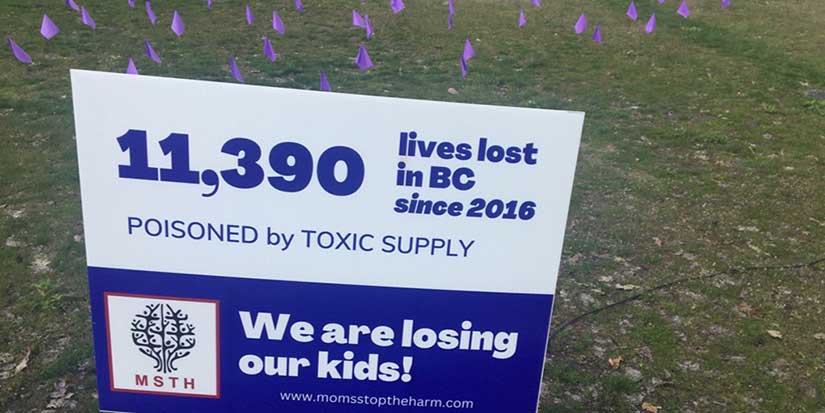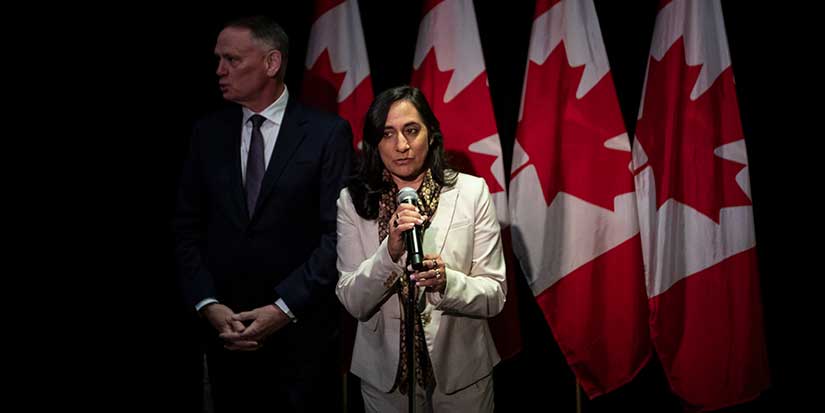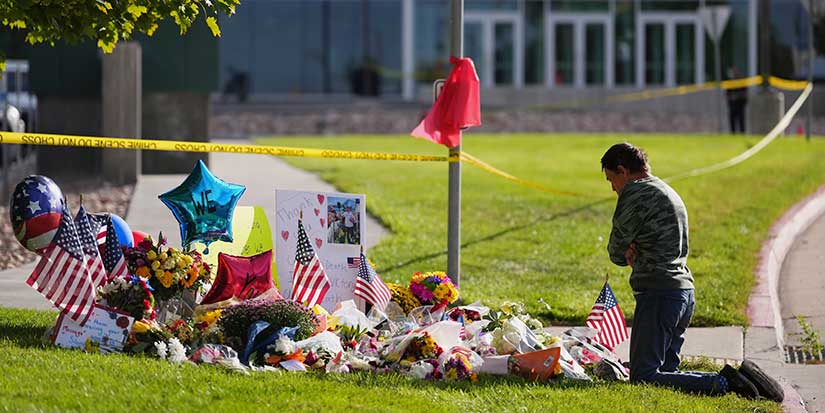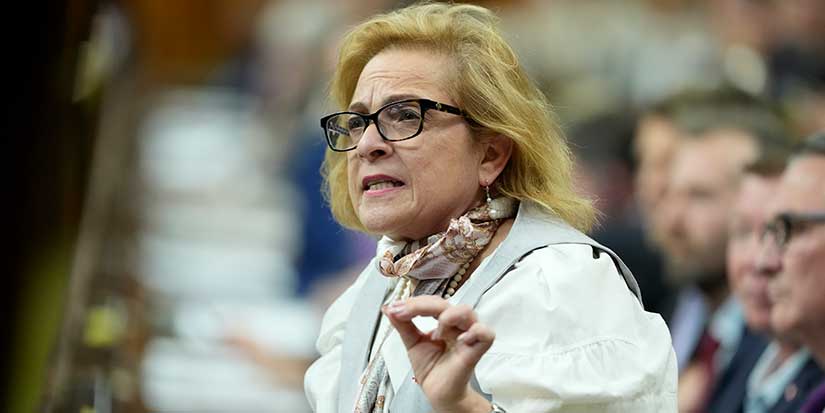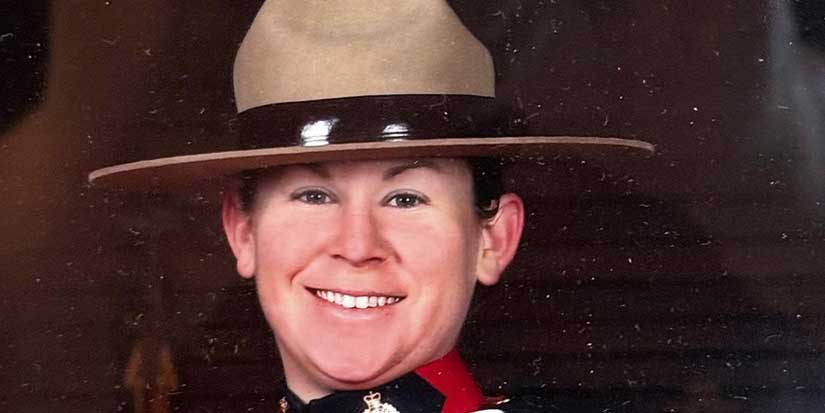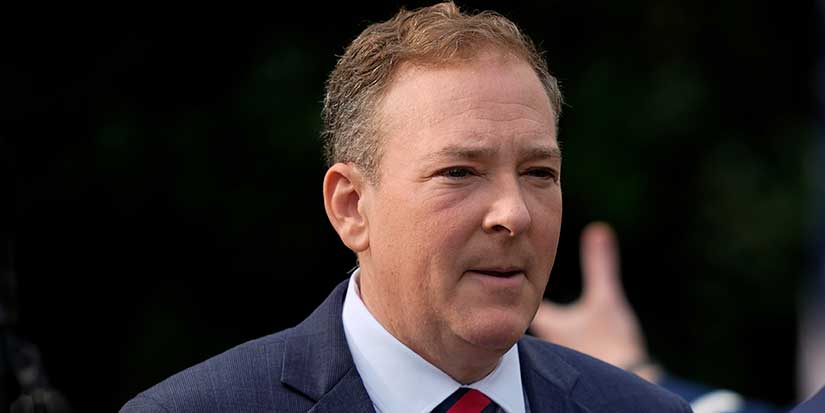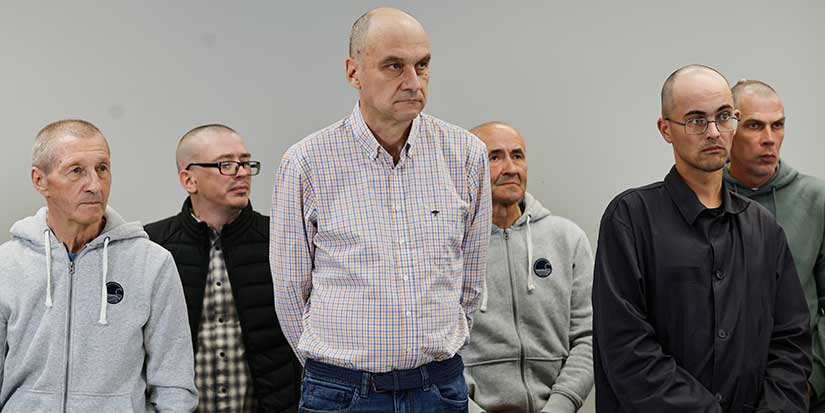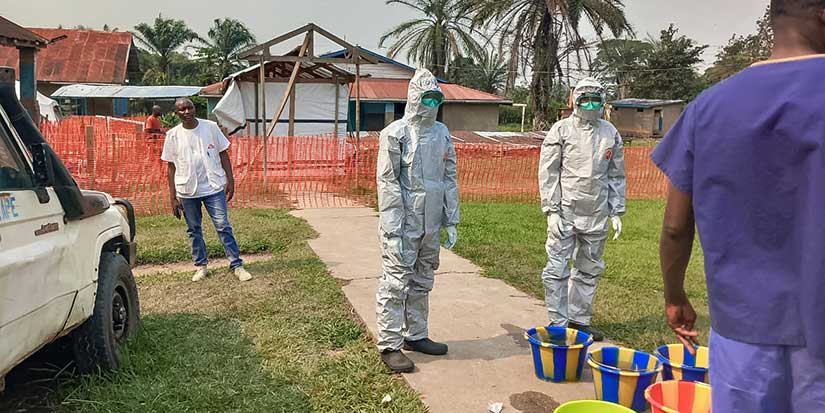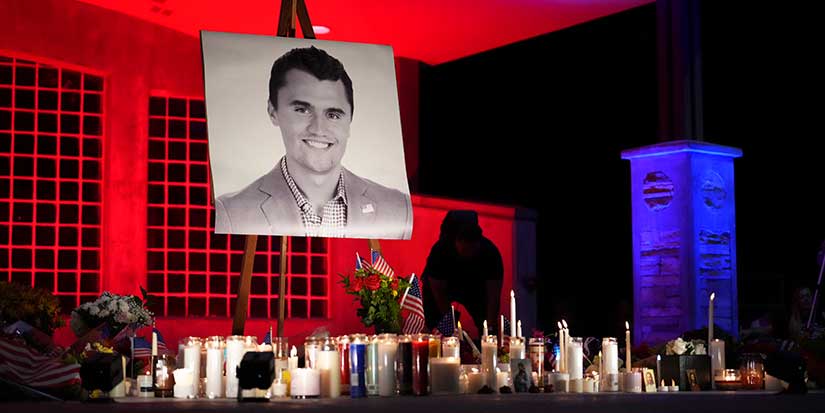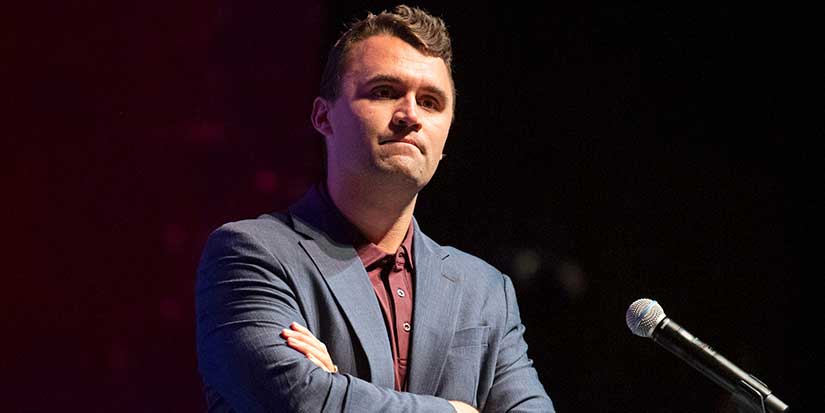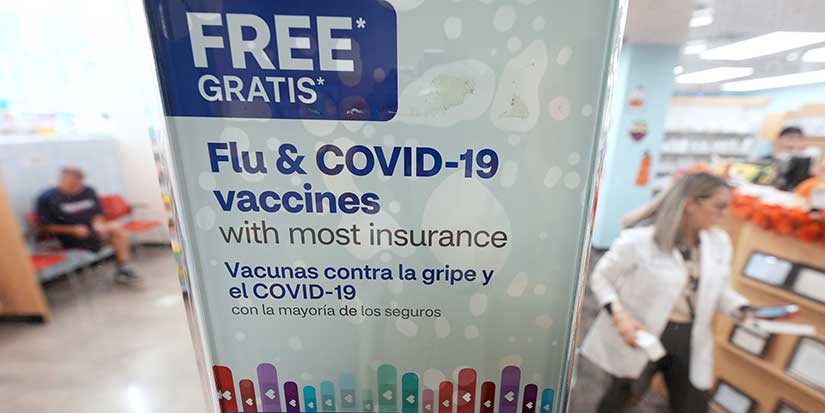Latest News
Moms Stop the Harm Richmond rally
Published 11:42 PDT, Wed April 26, 2023
Last Updated: 11:43 PDT, Wed April 26, 2023
—
Like the row on row of military graves in a World War battlefield, the purple flags – 2,272 in total – gently waved in the spring breeze at Minoru Field on April 14. Each one representing a 2022 casualty of poisoned drugs who, according to Debbie Tablotney, Richmond Board of School Trustees chair, “Didn’t deserve to die.”
Debbie, her husband Andrew and their two surviving sons, Trevor and Troy, lost the middle Tablotney child, Curtis, on Dec 14, 2022 to an overdose. The meds he had purchased illegally to control the voices in his head also contained an unknown amount of a toxins that killed him. He had struggled for 10 years.
At Curtis’s memorial service his oldest brother, Trevor, said, “No parent should have to do CPR on their child, much less twice.”
Representatives of Richmond city council, the Richmond School Trustees, and Richmond MLAs in attendance were all clear; they know what it will take to save lives: safe supply, safe injection sites, better mental health services, and a local detox centre so these young adults can be kept alive, be treated and helped back to a mentally healthy life. Each representative talked of the stigma of drug use and how it’s kept hidden, an all-too-common problem, a problem that is killing young adults in Richmond and throughout British Columbia.
On this day seven years ago, the provincial government declared an overdose emergency. Since then, the number of deaths has continued to climb, reaching 11,090—more than have died from COVID.
Trevor Tablotney said, “It’s these drugs. The problem is prohibition. That’s why people are dying,” harkening back to the days of liquor prohibition when many died of poisoned, illegal alcohol.
City councillor, Carol Day was clear, “Safe supply. That’s what it’s all about.” She mentioned that everybody has their crutch and for some it is a glass of wine, for others it is something else.
Former Vancouver Police officer, city councillor Andy Hobbes called for less judgement and more understanding.
De Whelan, long an advocate and ardent worker helping those who struggle, said Richmond offers no detox centres, places where those wishing to stop using drugs can go to safely reduce the drugs in their system. Stopping drugs suddenly, for those with a dependency, including alcohol, can lead to serious medical consequences or even death. It has to be medically managed yet there is no dedicated facility to do this in Richmond.
What Richmond does have is the Anne Vogel Clinic at Unit 210 - 7671 Alderbridge Way. Patients can call 604-675-3975 for an appointment. They do not need a doctor’s referral. The clinic does not dispense meds but can write prescriptions for opioid replacement medications and offers free fentanyl test strips so people can test their supply for this powerful drug. As well, safe using supplies such as syringes and pipes are available for free in the lobby. People do not need to be a client at the clinic to pick them up.
Troy, the youngest Tablotney, mentioned that in addition to his brother, he also lost a friend to poisoned drugs. A friend who had become dependent upon a prescription drug. A friend who had dreams; he was studying to become a pilot. No longer able to obtain a prescription, the friend resorted to the dark web, ordering the med from an untraceable internet source. A batch that contained fentanyl killed him – a young man with such promise, according to Troy.
So many flags, dotting the grassy field yet, as each speaker and attendee told their story, it became clear that each flag represented a tragedy for an entire family, each a preventable death, a young adult’s life cut short.
As the speeches ended, mothers came forward to plant half a dozen more flags, representing the 6 more people who will die today, and tomorrow another 6, recognizing these tragedies will continue until action is taken. Moms Stop the Harm calls on all levels of government to provide safe drugs to keep their children alive until they can find mental health support and treatment for their drug dependencies.
A common thread among the grieving families was that their adult child needed mental health services they could not get. Mental illness costs Canadians over $50 billion dollars per year, according to the Canadian Association for Mental Health. Yet, all levels of government combined spend about three quarters of a billion dollars per year on mental health.
MLA Henry Yao told the assembled families, “I cannot imagine your pain.” Yao spoke of his love for his little daughter and said, “Let us find ways to break the stigma so people can find support and not be ashamed.”
The Tablotney family has started TellYourOverdoseStory2022@gmail.com for those who have been affected to tell their stories anonymously or by name in photos, drawings, poems, or prose.
